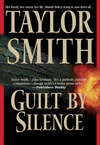Kitabı oku: «Deadly Grace», sayfa 4
“I don’t know, Chief,” Cruz said, head shaking.
“Look, keep in mind that Jillian got hurt, too. She had a concussion. Nils, my deputy, said she’d been knocked out, woke up on the kitchen floor. Who knows what might have happened if the neighbors hadn’t called in the fire, and if my deputy hadn’t gotten there fast as he did? She’d have died, too.”
“Fair enough,” Cruz conceded. There was no point in alienating a local police chief until he had more information. That said, he’d want a lot more information before he was prepared to rule out Jillian Meade as a suspect. “Chief Lunders, I’d like to make another request.”
“What’s that?”
“I’d like to ask you to seal off the scene. With all due respect to your volunteer fire chief and your men, sir, I think a professional arson team should go in and cover the ground with a fine-tooth comb. I can set it up through our regional office out there, if you wouldn’t mind.”
Of course, Cruz thought grimly, the local guys had already been tramping around in there when they went back to find the body, and who knew how many other pairs of boots had been in messing up the evidence since. But, with luck, the arson team would find enough of it intact to determine if the fire had had multiple start points or if accelerants had been used, either one a dead giveaway for criminal action.
“Well, no, I guess that might not be a bad idea at that,” Lunders said. “Sure, you go ahead and do that. I’ll get our boys to rope it off and make sure nobody goes in till your arson team gets here. But do you mind telling me what this is all about? Why are you folks taking an interest in this?”
“It’s a little complicated to go into over the phone. How about if I make arrangements to get that arson investigation going, and then I’ll get on a plane and be out there myself, tonight or tomorrow at the latest. I’ll tell you as much as I can then about where we’re coming from on this.”
“If you think that’s necessary…”
“Yes, sir, I do think it’s very necessary.”
Once past the garish billboard with the fish and the trees, Cruz drove up a small incline in the highway and found himself gazing down on a sweeping vista overlooking a picturesque little town that backed up against an evergreen forest, as advertised, one that extended right to the distant horizon. The town was wedged between the woods and a lake that bulged out from the western bank of the Mississippi, as if the river had sprung a leak in its headlong rush to reach the Gulf of Mexico. The map Cruz had picked up at the rent-a-car counter at the airport said this was Lost Arrow Lake. So maybe the angling claim on the billboard wasn’t such a stretch, he thought. Unless he was up to a lesson in the finer points of ice-fishing, he’d have to take the boast at face value.
The official town marker appeared on the right shoulder of the road and declared his entry into Havenwood, population 2,012. Another blue sign beyond it directed him to take the next right for local police headquarters. His tires kicked up stones as he pulled into the gravel parking lot of the Havenwood Police Department a couple of minutes later. It was a squat, tan building with a prefab look, the kind of utilitarian structure thrown up by cost-conscious municipal councils all across the country. Cruz predicted a drafty squad room, a flimsy two-cell lock-up and a thin-walled office for the chief.
Parking next to a couple of black-and-white cruisers, he climbed out of the overheated rental, his lungs contracting in shock at the contact with air that was at least forty degrees colder than the balmy weather he’d left behind in D.C. Cruz flipped up the collar of his overcoat, wishing he’d remembered to put in the winter liner he scarcely used in Washington. His California-bred bones wondered, as they always did in places like this, what in hell possessed people to settle in such cold climates.
Inside the small lobby, a heavyset, gray-haired woman in a fuzzy pink cardigan sat behind a reception desk. She held a paperback novel in her hand, her arm extended across the black Formica countertop. As Cruz walked in, he saw her lick the tip of her forefinger, turn the page, then read on, her eyes furrowed in a deep squint. The wind whistled as he struggled to close the door behind him, and she glanced up at the sound, then did a double take.
“Hi, there!” Her face softened into a friendly smile as he crossed the speckled linoleum and came up to the counter. Squinting back at her book—a murder mystery, by the look of the cover—she folded over the corner of the page to mark her place, then closed it. “Can I help you?”
Cruz reached into his inside pocket and withdrew the leather case containing his identification badge and photo. “I’m Special Agent Cruz with the Federal Bureau of Investigation,” he said. “Chief Lunders is expecting me.”
The woman set the book aside and took his ID, extending her arm back and forth until she found a comfortable focal length. “Forgot my darn reading glasses on the kitchen table this morning,” she said, shooting an embarrassed glance in his direction. “Let’s see now…Alejandro Cruz.”
“You speak Spanish,” he said. Her pronunciation was pretty near dead-on, including substituting an aspirated “h” for the “j,” instead of the soft “g” that had long ago made him abandon “Alejandro” for “Alex.”
She blushed. “Oh, no, hon, not a word, unless you count ‘una margarita, por favor.’ I got that one pretty much down pat when I won a trip to Acapulco few years back.”
He smiled. “Well, that’s an important phrase to know.”
“I’m Verna Rasmussen,” she said, extending her hand. “Just call me Verna.”
“Nice to meet you, Verna. And you did say the name exactly right, by the way.”
“Well, good. I try. I figure a person’s name is special, so we should make a little effort to get it right, don’t you think? My dad was a ‘Bjorn,’ and he got so fed up with people calling him ‘Ba-jorn’ that he gave up and went by ‘Bub,’ if you can believe it. And, anyway, Alejandro’s an easy one. Like Alejandro Rey, the actor. Right?”
He nodded. “I guess so. Most people call me Alex. And as I say, the chief’s expecting me. Could you tell him I’m here?”
Her gray pin curls gave a regretful shake as she handed him back the ID. “’Fraid he’s not in today, hon.”
“I spoke to him by phone just yesterday afternoon. He knew I was coming.”
“You came out from Minneapolis?”
“No, ma’am, from Washington.”
“D.C.?”
“That’s right.”
“Oh, my, all the way from Washington, D.C.”
Cruz tucked the ID away. “So, what do you think, Verna? Could you give him a call, remind him I’m here?”
“Well, I would, but there’s just no way. Chief Lunders is in the hospital, and he’s not going to be back for a while, I don’t think.” One of her eyebrows rose.
That and her grimace told Cruz there was a long story there that Verna was probably quite prepared to tell him if given half a chance. But, he noted, glancing at his watch, it was past noon. In another couple of hours, the winter sun would start sinking fast before he’d had a chance to get a look at the site of the fire. The arson team was supposed to have gone over the ground this morning and were to have left their initial findings with the chief, but Cruz wanted his own clear picture to go with the team’s findings.
He glanced over Verna’s head to the glass window behind her. It opened into what appeared to be the squad room, with four steel desks facing one another in the center and a bank of file cabinets on the far wall. There was only one officer inside, as far as he could see from his vantage point. A khaki-uniformed officer, with buzzed hair nearly as white as the paper in his typewriter, sat at one of desks, and he appeared to be engaged in the familiar, endless and thankless task of typing up police reports on the ancient Olivetti in front of him. He looked too young to be out of high school.
“Who’s in command while Chief Lunders is laid up?”
“That’d be Nils Berglund, the deputy chief.”
“Could you—”
“—but he’s out on a call right now.”
“Can you get in touch with him?”
“Oh, sure thing!” she said, brightening. She cocked her thumb at the dispatch unit behind her. “I can call him up on the car radio.”
“Would you do that?”
“Sure. Why don’t you have a seat?” She pointed to a row of padded arm chars hugging one wall. “Oh! And here,” she added, pulling out a Tupperware box from a ledge behind her chair and peeling back the plastic lid. “Have a Toll House cookie while you’re waiting. I baked these myself for the guys. Forgot to put ’em in the squad room.”
Cruz took one of her cookies, then headed over to the waiting area while she put out the call. Instead of sitting, something he’d already spent far too much time doing that day, he headed for the bulletin board on the wall opposite, opening his overcoat which suddenly felt oppressively heavy in the heated building. Hot and cold, hot and cold.
He made short work of Verna’s cookie as he scanned the notices on the cork board. In one corner hung a familiar notice, the FBI Ten Most Wanted list, a gimmick J. Edgar Hoover had dreamed up in one of his more creative PR moments back in his early days as Director. Now, the list hung in half the federal, state and municipal offices in the country. Mostly, though, the bulletin board featured local notices about septic tanks, fishing and boating licenses, and the burning of household trash. A clipboard hanging on a peg contained minutes of town council meetings, while a hand-drawn sign down in one corner of the board, covered in turquoise rabbits and colorful eggs, asked for volunteers to help organize the 1979 Havenwood Easter Parade and Egg Roll.
Cruz heard Verna put out the call over the radio to the deputy chief, and a deep voice, broken by static, came back in response. He was just turning to eavesdrop when the last line on the Easter announcement caught his eye.
For more information, please contact:
Grace Meade
Chairlady, Havenwood Easter Parade Committee
Grace Meade, recently deceased pillar of the community and mother of his quarry, Jillian Meade. Now who would the town turn to organize its official Easter celebration? Cruz wondered, as behind him, the deputy’s crackled, baritone voice announced over the radio that he was on his way in.
CHAPTER 5
Montrose, Minnesota
Thursday, January 11, 1979
It was that woman’s voice again, firm but friendly—the kind of voice that wants you to know it intends no threat, but which commands your attention, nevertheless. Jillian lay still, feigning sleep—which wasn’t hard because sleep was never very far away. Hoping it would be enough to discourage the voice. Willing it to just leave her alone.
“It’s Dr. Kandinsky, Jillian. Do you remember? I was in to see you a couple of times yesterday and then again last night.”
Yesterday? Last night? What time was it? What day was it? When she’d opened her eyes a while back—when was that?—Jillian had noticed her watch was missing, taken along with the rest of her things, she supposed. The windows in the room were high and small, and all she’d been able to see out of them was a pale sliver of frigid-looking sky. There’d been daylight, but the shadows were long and blue-tinged, the way they get on cold winter days when the sun over the prairie is brilliant but without any heat in it.
“How are you feeling today?” the voice asked. “You’re looking a little better.”
Better than what? How long had she been there? If this doctor said she’d been in last night…well, fine. It could have been last week or last month for all Jillian knew. She did remember that voice, though, warm and reassuring. Seductive, like a promise of mercy. Or absolution, maybe, for what she’d done.
Her eyes snapped opened. The guardrails were still there, and the green wall. What did I do?
“You’re safe now,” the doctor said. “No one is going to hurt you here. I thought you might like to get cleaned up a little today. You’d feel much better if you did.”
Cleaned up? What happened? She stared at her hand lying outstretched on the crisp white mattress. She recalled someone washing blood off her when she was first brought in, but there was still some under her bitten nails, crusted, brown and guilty looking. She must look godawful, Jillian thought. Her hair was hanging loose and unbrushed, sticky mats clinging to her cheeks and neck and shoulders, and the long bangs flicking against her lashes felt bristled at the ends. Singed, she realized suddenly. Singed like her lungs, which hurt with every breath she took. And she could smell the sour, dusky odor of charred wood. It seemed permanently etched in her nasal passages….
And then, suddenly, it all came back. She remembered the fire. She remembered Nils, and the ambulance, and what had happened after they had examined her in the ER and left her sedated and alone to try to sleep off the shock of the fire. Of what she’d seen in her mother’s house.
She pulled in her arm and curled into a tight ball. Mother! Her mother was dead. Why wasn’t she dead, too? A clipped voice in her head snapped a reply: Because you’re weak!
It was true. She was weak. Twice now, she’d gone to the brink, only to let herself be pulled back. She should have died with her mother. She’d wanted to. She’d wanted to crouch down on the floor next to that small body, take it in her arms and hold it close to her breast, a full-circle reversal of their earliest roles—she and her mother alone at the end as they were at the beginning, finally at peace with one another and with the past, waiting for the purifying flames. But at the last minute, she’d allowed herself to be saved. She’d never had her mother’s iron will.
And then, in the ER…she’d been so close! The needle had been in her arm. All she’d had to do was push down on the plunger and let herself be swept to freedom on a tiny, merciful bubble of air. This could all have been over by now, but instead, she’d hesitated a split second too long and the decision had been taken out of her hands.
Now, here she was…where? Not on the emergency room gurney anymore, that much was certain. Lying in a bed, after having been moved to one of the wards probably. How long had she been here? She vaguely recalled they’d given her something after her stunt with the hypodermic, another tranquilizer, much stronger than the first, which had obviously kept her heavily sedated. For how long she didn’t know, but long enough that she had no memory of being moved to this room. It was obvious she had no tolerance for drugs. Not surprising, she thought grimly. Even in college, at the height of the psychedelic Sixties, she’d never taken anything stronger than an aspirin. The ever-well-behaved daughter of Grace Meade.
She closed her eyes, and immediately, gratefully, found herself sinking once more. The mattress seemed to be absorbing her like some great, downy mouth swallowing her whole. She was Jonah in the belly of a feather tick whale, floating on soft cotton waves, content to go where the flow carried her.
After her stunt in the ER she felt as if she had viscous muck flowing through her veins instead of blood. She didn’t care, as long as she didn’t have to think or remember. Maybe it was more than the drugs. Maybe it was some primitive instinct driving her to shut down rather than face the unbearable. Playing possum in the face of horror.
Her mother would be appalled to see her lying here like this, mute, stupid and filthy. Grace Meade was always at her best, turned out to perfection. In her entire life, she’d never so much as answered a knock at the door without first glancing in the mirror to check her lipstick, pat her hair and smooth down her dress. She’d tried to make her daughter into a miniature replica of herself, but it was hopeless, of course. Jillian had lost the genetic lottery. Had failed to inherit any of her mother’s fine features: her golden hair, her striking blue eyes, or her peaches-and-cream English skin. She was olive-skinned and brunette, like her father, apparently, growing taller and bonier than her mother had ever been.
Still, Jillian thought, she would have given anything, just for once, not to hear the note of hopelessness that always accompanied her mother’s chirpy words of encouragement. “Well, we just have to work with what we’ve been given, don’t we, dear?”
“What do you think, Jillian? Wouldn’t it feel good to get up and take a hot shower? Have a little lunch, maybe sit and talk awhile?”
It was the doctor again, Jillian realized with a start, not her mother. She opened her eyes. She was trying to please, but this was about as much as she could manage. Her mother would definitely have disapproved. Grace was unfailingly poised and polite in any public venue, no matter how trying the circumstances. She would have at least sat up when the doctor came in. But, frankly, Jillian thought, she just couldn’t be bothered. She didn’t mean to be rude, but she had nothing to say to this woman.
The doctor, in any case, seemed content to wait her out. The minutes ticked by. Jillian could feel her presence, but she remained silent—watching, perhaps. Observing. And what does she see? Jillian wondered. What kind of monster is this before her?
Suddenly, she felt the bed vibrate. She cringed as a hand reached across her, a hand at the end of a white sleeve. A soft gust of air brushed her cheek as the doctor laid something on the mattress next to her head. It was a notebook, Jillian saw. A thick notebook with a stiff, nubbled black cardboard cover. Then, the white-coated arm withdrew again and the bed was still.
“If you’re not ready to talk yet, Jillian, it’s all right. I’ll be here when you are. But I’m told you’re a writer and historian,” the doctor added—unnecessarily, Jillian thought. She wasn’t that far gone. She knew who she was. That was the problem, wasn’t it? “You know how to arrange facts into an understandable flow. I know you feel confused right now, but maybe it would help to sort out your thoughts if you wrote down what’s going through your mind.”
Oh, God…what’s going through my mind?
Jillian’s eyes closed once more, shutting out the light, praying for a miracle to shut out the sound of that woman’s voice and, mostly, to drown out the screaming of her own guilty thoughts.
What does she want me to say? That I’m haunted by the memory of my mother, her lifeless blue eyes staring up at me from the kitchen floor, as accusatory in death as they were in the moments before it arrived? That I don’t want to be alive anymore? That I don’t deserve to be? My mother won’t let me be. Her beautiful, dreadful face is an image I’ll carry to my death—which will come soon, if courage doesn’t fail me again.
62
CHAPTER 6
Havenwood, Minnesota
Thursday, January 11, 1979
Deputy Chief of Police Nils Berglund turned out to be one of those massively built Scandinavians who makes every man around him feel puny. From the moment Berglund finally showed up at headquarters and extended a reluctant hand, Cruz felt inclined to keep his distance, less out of intimidation (he hoped) than for a clearer view of this human mountain. He himself was five-eleven, but Berglund both overshadowed and outweighed him by quite a bit. Nor did anything about the deputy’s taciturn manner spell welcome, despite the easy goodwill Cruz had sensed over the phone from the chief of police. Berglund’s square features seemed permanently corrugated into a frown, and his pale, icy eyes defied reading.
“Guess we’ll use the chief’s office,” he grunted, directing Cruz around the reception desk and through the door that led into the squad room beyond.
“Verna here tells me he’s in the hospital,” Cruz said.
Berglund was holding the door open, but his gaze shifted to the reception desk, where Verna had gone back to squinting at her mystery novel. His frown deepened, and it was impossible to tell which annoyed him more, her on-the-job reading or the fact that she’d been gossiping with a stranger. Verna, in any case, seemed oblivious. Cruz had a feeling she was more than capable of handling Deputy Berglund and anything else that came her way.
The deputy waved him into a corner office, then shut the door behind them. Shrugging out of his green nylon bomber jacket, he flung it over a chair. “Take your coat?”
“I’m okay, thanks.”
“Suit yourself. Have a seat.” Berglund moved around behind the big steel desk and settled into a brown, imitation leather chair that squeaked in protest at the sudden load.
“What happened?” Cruz asked. “To the chief, I mean.”
“He’s been feeling rough for a while, having tests. Doc called him last night, told him to check into hospital first thing this morning.”
“Which hospital?” Cruz asked, remembering how the chief had ranked the area’s medical options according to the severity of the patient’s condition.
“The Mayo Clinic in Minneapolis.” From that news and from Berglund’s tone, there wasn’t much doubt the diagnosis was serious, the prognosis iffy, and the deputy looking at imminent promotion.
“Sorry to hear it,” Cruz said. “He sounds like a good man.”
“Yeah, he is. Anyway,” Berglund said, “he told me you called. He also told me it was you who arranged for that arson team that’s crawling around over there at the fire scene.”
“They’re in town right now?”
“Working the scene as we speak. That’s where I was when Verna called up on the radio.”
“Maybe we should head over,” Cruz said. “I wouldn’t mind taking a look myself before I talk to Jillian Meade. I’d like to hear what those guys have to say about the cause of the fire.”
“Just hold on a minute,” Berglund said as Cruz made moves to get up. “We can do that, but first, I want to know why you called them in, to begin with, and why it is you flew out here all the way from Washington.”
Cruz settled back into his chair. “I’d been trying to track down Jillian Meade back in D.C. when I heard she was here visiting her mother. I tried to phone but the line was down. That’s when I put in the call to Chief Lunders.”
“Who told you she was at her mother’s?”
“Her boss at the Smithsonian.”
“And why are you looking for her?”
“Her name came up in an alert from Scotland Yard. I work in a section of the Bureau that liaises with foreign police forces on cross-border criminal investigations.”
“And…what? You think Jillian Meade’s some kind of international jewel thief or something?” Berglund snorted. “Get serious.”
“You know her well, do you?”
Berglund shrugged. “She grew up here. It’s a small town. Everybody knows everybody. So what is Scotland Yard claiming she did?”
“I don’t know that they necessarily think she’s done anything at all. She was over in England last month around the time some stuff went down, and—”
“What kind of ‘stuff’?” Berglund interrupted.
“A couple of homicides, as a matter of fact.”
“And they think Jillian had something to do with them?” The deputy’s expression was so incredulous that Cruz was beginning to feel a little foolish for even suggesting it, except that Jillian Meade’s mother had now turned up dead, too. At the very least, the woman was in danger of turning into the human equivalent of the Black Death, given the pernicious effect she seemed to have on those she visited. Berglund appeared intent on giving her the benefit of the doubt, however, and Cruz decided he could do the same, at least until he’d gotten the lay of the land.
“They’re not necessarily saying she had anything to do with the murders, but Miss Meade was in the vicinity at the time and had apparently been in contact with the victims. Scotland Yard was thinking she might have seen or heard something that would bear on their investigation. As far as I know, they simply see her as a potential witness at this point.”
“So you’re looking to ask her some questions, nothing more?”
“That’s right.”
“If that’s the case, how come you arranged for this arson team to come out? And,” Berglund added, “how come you asked Chief Lunders if he thought Jillian had murdered her mother?”
“I guess because it’s in my nature to play devil’s advocate. It may be coincidence, but there were fires set after those murders in the U.K., too. Look at it from my perspective. I talk to her boss, he tells me she’s here in Havenwood, then I talk to your boss, and he tells me about the fire. It does tend to raise a few questions in a person’s mind, you have to admit.”
“Humph.”
“So can you tell me exactly what happened here?”
Berglund threw open his hands in a “why not” gesture. “Tuesday night, we got a call about a fire out at Grace Meade’s place. I was the first to arrive on the scene, ahead of the fire trucks. The fire was going strong by then. I found Mrs. Meade and Jillian still inside the house, although Grace was already dead. I got Jillian out, but then the fire spread so fast we couldn’t get her mother’s body out till yesterday.”
“The Chief said you examined Mrs. Meade’s body at the scene before you took the daughter out.”
“Uh-huh. I found it lying in the hall, just outside the kitchen.”
“What did you see as far as signs of trauma, anything like that?”
“There was a fair amount of blood on the front of her sweater, but that was about it. No bruising or any other sign of battery that I could see, although it was pretty dark in there, so I wouldn’t swear to anything. The only light I had to go by was the fire burning in the living room, which was pretty much out of control by then.”
“What was the source of the blood?”
“It looked like she’d taken a wound to the chest. Like I say, it was dark, so I was going half by feel. I noticed her sweater had a tear in it, just here.” Berglund put his fingertips to his furnacesized chest, high and just off-center. “The tear was right in the middle of the blood stain, which I could see clearly because she had on a light-colored sweater and the blood showed up dark.”
“So she was down for pretty much the whole time she bled,” Cruz said, thinking aloud. “If she’d been upright, the entry wound, if that’s what it was, would have been at the top of the stain and the blood would have run down. Was it an entry wound, by the way? Did you turn her over?”
Berglund nodded. “Sort of. The fire was spreading fast, and I knew I needed to get her out of there, so I picked her up and put her over my shoulder to carry her out. Her back was soaked with blood, and when I put my hand there to steady the body, it felt pretty pulpy. Her sweater back was also shredded.” Berglund seemed to shudder at the memory.
Poor guy, Cruz thought. His actions had been pretty heroic, when you came down to it, going into the burning house like that to rescue the women. Like most heroes, he’d probably acted on sheer instinct and adrenaline, revulsion at the ugliness of what he’d found only hitting him afterward, when the initial shock wore off.
“Chief Lunders told me you weren’t able to get the body out, in the end, though.”
“No. I’d already left Jill on the porch when I went back inside to look for Grace. I was trying to get a closer look at the wound when I realized Jill was back and standing right behind me. I didn’t want her to see her mother like that.” Cruz was startled by Berglund’s fist suddenly smacking his thigh. “I had her, dammit! I’d picked her up and I had her. She was sixty-years old, for chrissake, and just a little thing. Even with Jillian to worry about, I could have gotten her out. I could have managed them both.”
Cruz had no doubt the deputy could have easily carried two women out of a burning building. “So what happened?”
“Jillian wouldn’t leave! I tried to drag her out with my free hand, but she kept fighting me. She was disoriented—she’d taken a blow to the head herself, we found out later. And she was half crazy with panic and grief, screaming for her mother.”
“But the mother was definitely dead?”
“Yeah, I’m pretty sure she was. I didn’t have time to try for a pulse before Jill came back in and flipped out on me, but by the way Grace looked…” His cropped blond head gave a grim shake. “As it was, I had to put her down again and leave her there while I dragged Jillian out a second time. By the time I handed her off to the paramedics, the fire had gotten out of control and I couldn’t get back inside the house. It was only when the ashes finally cooled down that we were able to get in and locate the body. It was in the rubble just off the kitchen, right where I’d left her.”
“Chief Lunders said there was going to be an autopsy.”
Berglund nodded. “It was this morning. County coroner took the body over to Montrose yesterday, but given how badly charred it was, he decided to call in a medical examiner from the State Bureau of Investigation. They’ve got more experience dealing with cases like this.”
“Were they able to determine a cause of death?”
Berglund shook his head. “Not with any degree of certainty. All the flesh and most of the organs were toast.”
“What about all the blood you’d found, and the entry and exit wounds? That would suggest a gunshot wound, wouldn’t it?”
“Yeah, although, like I said, the body was burned beyond recognition, and they couldn’t find much trajectory evidence. A couple of the interior organs were partly intact—the collapse of the roof eventually smothered some of the fire—but it wasn’t enough to get a clear picture of whether or not she’d been shot. We haven’t found any bullets or spent cartridges at the scene, although your arson guys are keeping an eye out for them. The ME did find a fracture on the breastbone, though, and taken together with what I was able to tell them about the holes in her sweater, he thought it was consistent with the theory that she’d been shot, probably with a fairly large caliber weapon.”











